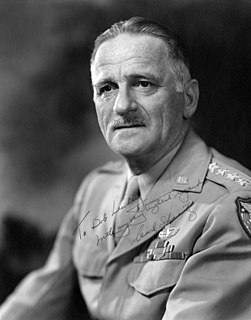A Quote by Lane Evans
World War II was a decisive time in our history and June 6, 1944, marked the decisive moment of the war.
Related Quotes
Cartier-Bresson has said that photography seizes a 'decisive moment', that's true except that it shouldn't be taken too narrowly...does my picture of a cobweb in the rain represent a decisive moment? The exposure time was probably three or four minutes. That's a pretty long moment. I would say the decisive moment in that case was the moment in which I saw this thing and decided I wanted to photograph it.
However, there is a fundamental difference between the issue related to Japan's history and our negotiations with China. What is it all about? The Japanese issue resulted from World War II and is stipulated in the international instruments on the outcomes of World War II, while our discussions on border issues with our Chinese counterparts have nothing to do with World War II or any other military conflicts. This is the first, or rather, I should say, the second point.
I realized how for all of us who came of age in the late sixties and early seventies the war was a defining experience. You went o r you didn't, but the fact of it and the decisions it forced us to make marked us for the rest of our lives, just as the depression and World War II had marked my parents.
In our victory over Japan, airpower was unquestionably decisive. That the planned invasion of the Japanese Home islands was unnecessary is clear evidence that airpower has evolved into a force in war co-equal with land and sea power, decisive in its own right and worthy of the faith of its prophets.
It's important to remember that World War II was experienced very much as a continuity in that sense. Most of World War II in most of Europe wasn't a war; it was an occupation. The war was at the beginning and the end, except in Germany and the Soviet Union, and even there really only at the end. So the rest of time it's an occupation, which in some ways was experienced as an extension of the interwar period. World War II was simply an extreme form, in a whole new key, of the disruption of normal life that began in 1914.
History of America, Part I (1776-1966): Declaration of Independence, Constitutional Convention, Louisiana Purchase, Civil War, Reconstruction, World War I, Great Depression, New Deal, World War II, TV, Cold war, civil-rights movement, Vietnam. History of America, Part II (1967-present): the Super Bowl era. The Super Bowl has become Main Street’s Mardi Gras.

































